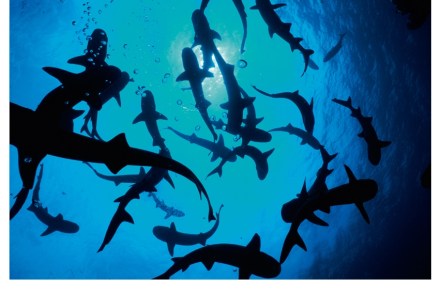Saviours of the sea
The last time we went out for lobster in Lyme Bay we found a dogfish in the creel. A type of shark that roamed the seas before dinosaurs existed, a dogfish won’t slice your leg off the way a Great White might, but it is very scratchy to hold onto, thanks to its denticles, the











